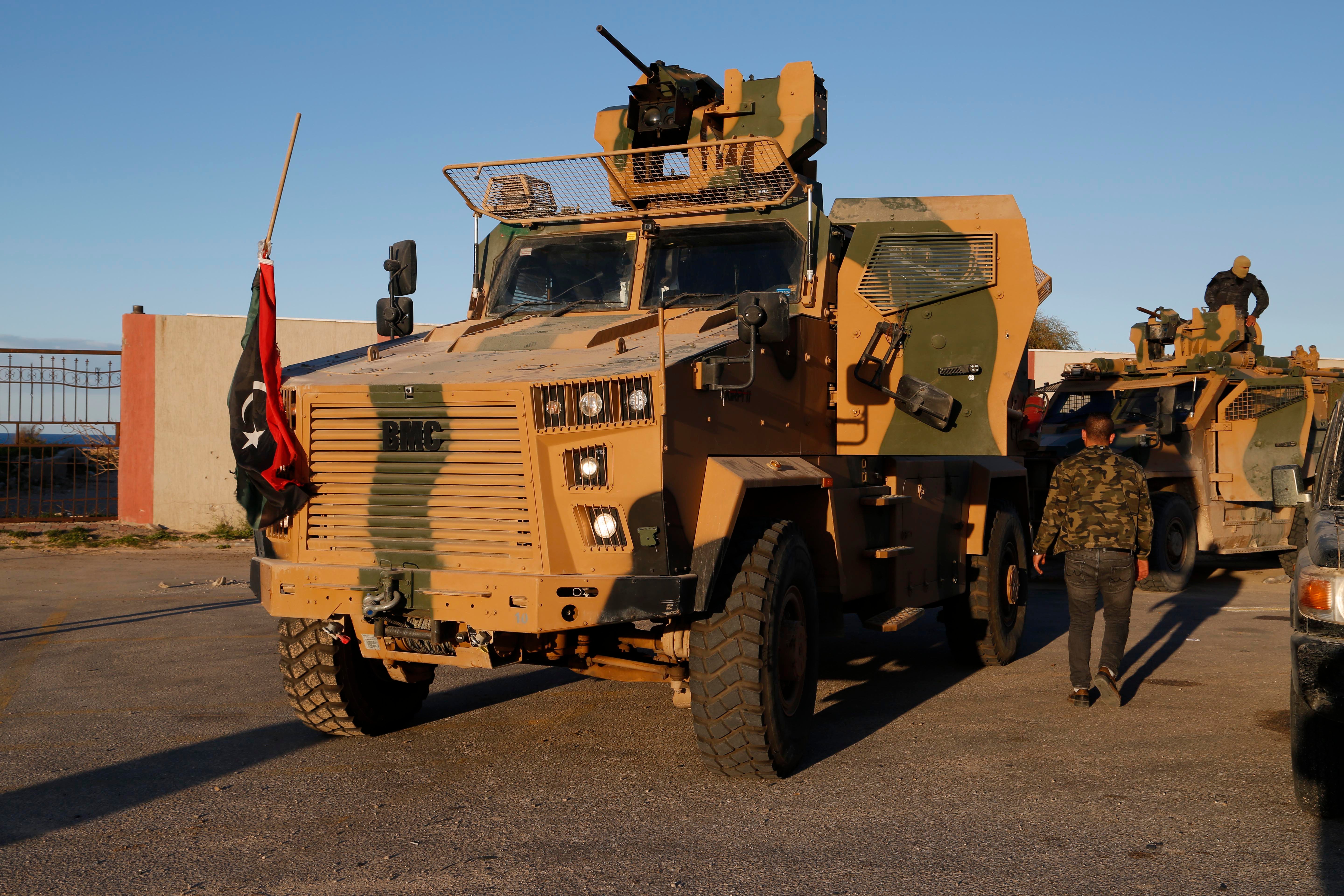Libya's instability has 'quite rapidly' deteriorated and will worsen if no elections, says UN envoy
The top U.N. official in Libya is warning that the political, military and security situation in the oil-rich north African country has deteriorated “quite rapidly” and without renewed political talks leading to a unified government and elections there will be greater instability

Your support helps us to tell the story
From reproductive rights to climate change to Big Tech, The Independent is on the ground when the story is developing. Whether it's investigating the financials of Elon Musk's pro-Trump PAC or producing our latest documentary, 'The A Word', which shines a light on the American women fighting for reproductive rights, we know how important it is to parse out the facts from the messaging.
At such a critical moment in US history, we need reporters on the ground. Your donation allows us to keep sending journalists to speak to both sides of the story.
The Independent is trusted by Americans across the entire political spectrum. And unlike many other quality news outlets, we choose not to lock Americans out of our reporting and analysis with paywalls. We believe quality journalism should be available to everyone, paid for by those who can afford it.
Your support makes all the difference.The top U.N. official in Libya warned Tuesday that the political, military and security situation in the oil-rich north African country has deteriorated “quite rapidly” over the past two months – and without renewed political talks leading to a unified government and elections there will be greater instability.
Stephanie Khoury painted a grim picture to the U.N. Security Council of rival government forces unilaterally moving toward each other in July and August, sparking mobilizations and threats to respond, and unilateral attempts to unseat the Central Bank governor and the prime minister in the country’s west.
Libya plunged into chaos after a NATO-backed uprising toppled and killed longtime dictator Moammar Gadhafi in 2011. In the chaos that followed, the country split, with rival administrations in the east and west backed by rogue militias and foreign governments.
The country’s current political crisis stems from the failure to hold elections on Dec. 24, 2021, and the refusal of Prime Minister Abdul Hamid Dbeibah — who led a transitional government in the capital of Tripoli in the west — to step down. In response, Libya’s east-based parliament appointed a rival prime minister who was replaced, while the powerful military commander Khalifa Hifter continues to hold sway in the east.
Khoury warned the council that “Unilateral acts by Libyan political, military and security actors have increased tension, further entrenched institutional and political divisions, and complicated efforts for a negotiated political solution.”
On the economic front, she said, attempts to change the Central Bank governor are fueled by the perception of political and security leaders, and ordinary Libyans, that the bank “is facilitating spending in the east but not in the west,”
Khoury also pointed to the unilateral decision by the Libyan National Army, which is under Hifter’s control, to close the Sharara oil field, the country’s biggest, “causing the Libya National Oil Corp. to declare force majeure on Aug. 7.” Force majeure frees companies from contractual obligations because of extraordinary circumstances.
The National Oil Corp. accused the Fezzan Movement, a local protest group, of responsibility for the shutdown. But several Libyan papers reported that it was a result of Hifter’s retaliation against a Spanish company that is part of the joint venture operating Sharara for an arrest warrant issued by Spanish authorities accusing him of arms smuggling.
In one of the latest political acts, some members of the east-based House of Representatives met in Benghazi on Aug. 13 and voted to end the mandate of the Government of National Unity and Presidency Council in the west. The House members also voted to transfer the role of Supreme Commander of the Armed Forces to the speaker of the House of Representatives, and endorsed its designated government in the east “as the only legitimate executive” – moves immediately rejected by leaders in the west.
Khoury told council members “the status quo is not sustainable.”
“In the absence of renewed political talks leading to a unified government and elections you see where this is heading — greater financial and security instability, entrenched political and territorial divisions, and greater domestic and regional instability,” she warned.